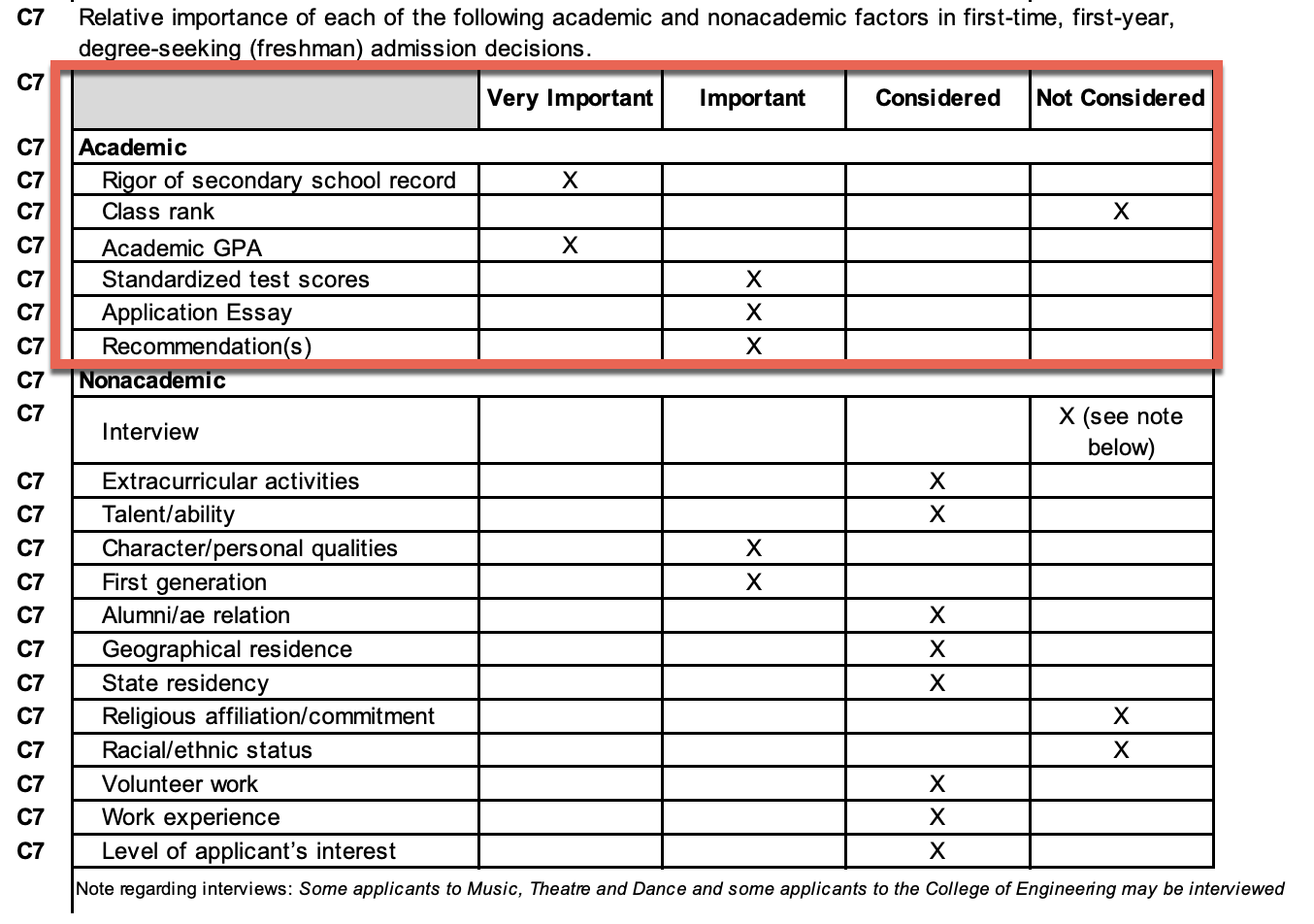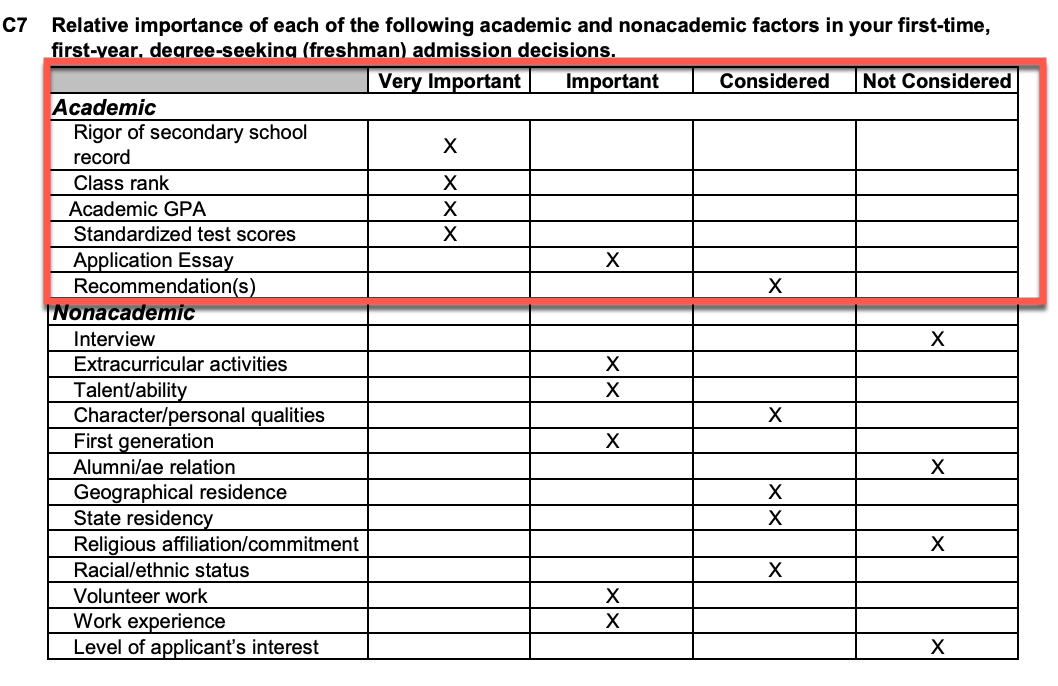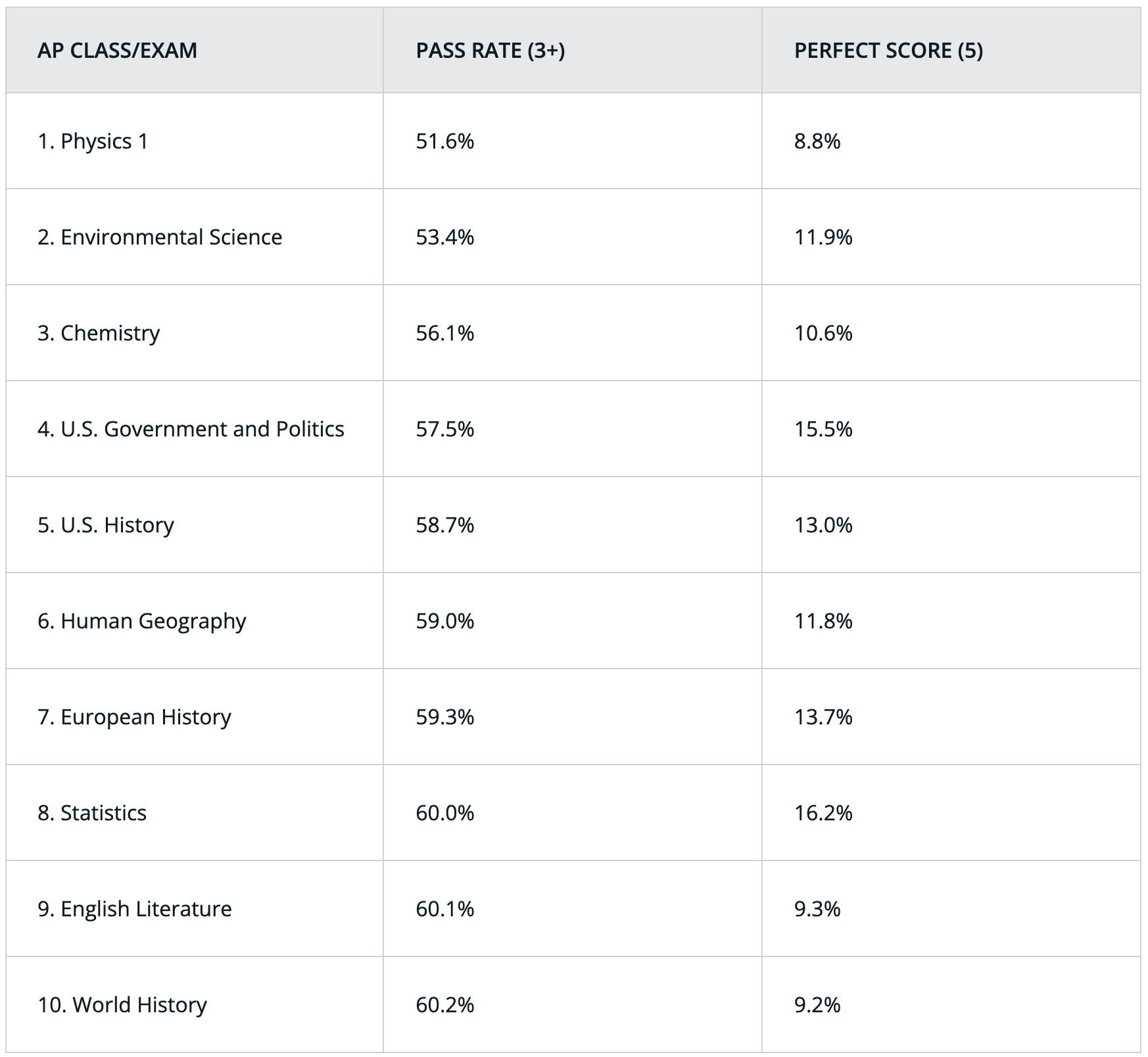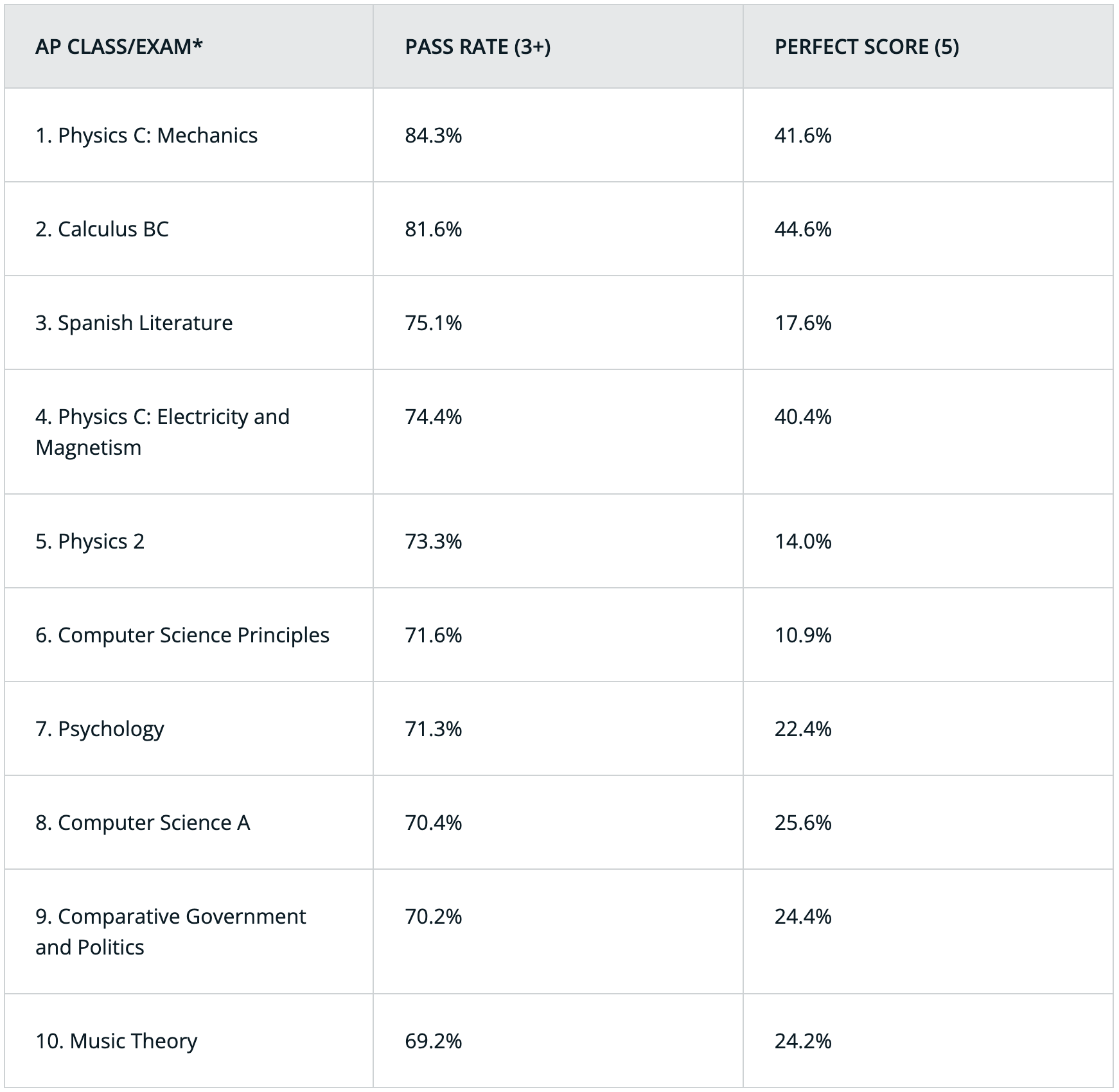3 Reasons Why You Should Take AP Courses

3 Reasons Why All College Bound Kids Should Take Challenging Courses
To AP or not to AP, that is the question.
There seems to be a lot of confusion about whether high school students should take AP and Honors classes or not.
Maybe the better question to ask is if your child is ready for these classes?
If they are ready, are some classes easier or harder than others? Are some better for college admissions?
For answers to these questions and how else to design your child’s future, this guidebook has all the answers.
Click here to listen to this as a podcast.
3 Reasons Why All College Bound Kids Should Take Challenging Courses
One of the biggest challenges for prospective college students is finding the right academic workload that produces:
- the best grades
- the least amount of work
- the best chance of getting accepted into the college of your choice.
Oh, and if you learn something in the process, that would be great too!
If you follow the path recommended by the schools, your child will be eligible for college after graduation. But so will everyone else who took the same path.
To stand out and be considered for more competitive colleges, your child needs to do more and be better than others.
Competitive colleges want to see a transcript with a high grade point average and lots of rigor (the college code word for challenging courses). In addition to rigor, many colleges still look at scores from the ACT or SAT (called test-optional schools), activities kids have participated in, some teacher recommendations, and, if your son or daughter wants to attend an art or design school, a portfolio.
If that sounds daunting, it is.
Kids get caught up in the "more and better" game, and before long, they are taking too many challenging classes and trying to do too much in their non-academic activities to stand out.
Some kids can handle it, and some kids can’t.
The only downside for the kids that can handle is a little less sleep and some extra stress. For others, who were not prepared for this heavy workload, there is a chance they will struggle with:
- poor grades
- social withdrawal
- academic burnout
- anxiety & depression
At this point, many parents throw up their hands in disgust and say it's not worth the effort. Don’t let that be you!
We can find a solution.
We just need to do a little future planning to design a future that makes sense and reduces the likelihood of failure. To do this, we need to understand why schools are structured the way they are.
Cafeteria Style Curriculum | It is All About Choice
In U.S. schools, you have a choice of subjects to take, just as you have a choice of what to eat for lunch in a cafeteria. Cafeteria lunches consist of several sections. You can choose a dish from protein (hot dogs and rubbery chicken nuggets are protein, right?), pasta/rice, fruits and vegetables, and dessert.
The class choices are similar.
Each year you get to pick one class from each "cafeteria-like" section. You have to take an English class, but you can select which one. The same goes for history, science, math, art, etc. If you follow the standard schedule and get good grades, you graduate and are eligible for college.
However, to help students stand out from the crowd (and sometimes earn college credit), high schools let them choose Honors, Advanced Placement (AP), or International Baccalaureate (IB) courses.
Depending on your "appetite" for work and how interested you are in getting into more competitive colleges, you can increase the intensity of your course choices.
Generally, the ranking of classes is as follows:
- Regular Courses
- This is the course that all high schools offer which will allow you to graduate and qualify for college. There is no difference in the degree attained by a student who takes only regular classes or one with many advanced courses.
- Honors Courses
- These courses supplement the regular curriculum and increase the intensity and scope of the work. Honors courses are sometimes required as prerequisites for AP courses.
- AP Courses
- These are the most challenging courses offered by the schools. The College Board operates the AP program (which also owns SAT). There are 38 different AP courses, of which most high schools offer only a fraction. There are currently 22,169 high schools in the U.S. that offer AP courses.
- IB Courses
- Similar to AP courses in terms of difficulty and courses available. However, there are only 1,207 IB programs in high schools in the United States.
The hidden advantage of these challenging courses is that you have the opportunity to level up your grade. Receiving additional grade points varies from school to school, but you can earn between 0.5 and 1.0 extra grade points for an honors course and 1.0 for an AP or IB course. Taking multiple Honors and AP courses is how some students can have an above 4.0 GPA.
The Cafeteria Plan offers you the opportunity to create a schedule that fits your needs and abilities.
But these choices can also bring a lot of anxiety.
Which courses should my child take? How many advanced courses do they need? Will this help once they get to college?
To answer these questions, we need to find out the purpose of these courses. Aside from interest, there are 3 factors to consider when selecting advanced courses:
- College Readiness
- College Competitiveness
- College Credit
#1 - College Readiness
Students who want to go to college should increase the difficulty of their courses each year in high school. Few students are ready for the demands of college in 9th grade, but students who put themselves on a path that becomes more difficult each year have a much greater chance of succeeding in college.
These incremental steps from year to year lead to exponential growth.
Those who've not yet taken challenging courses should start slowly. Prove to yourself that you can handle the workload and commit to the entire year, rather than diving headfirst into two or more courses that you aren't ready for.
For a comparison, imagine you wanted to be a mountain climber. You're not going to start with the most challenging and dangerous climbs, right? You'll start slowly by climbing trees, rock faces in gyms, and finding something that requires more skill while hiking or camping. The better you get at climbing, the more challenges you'll seek.
It's the same in school. If you're not good at it, you shouldn't put yourself in a position to fail.
Think you are college-ready? Check out the 5 keys to see if you really are.
5 Keys to College | Incremental Skill Development Leads to Exponential Gains.
The 5 Keys to College is a simple 5-step guide designed to ensure students have the future-proof skills they need to succeed in college and beyond. While it is entirely possible to succeed in college without these keys, it is much easier to manage the workload when you do not have to deal with unnecessary challenges.
Key #1
Advanced reading skills - aim for +1 or +2 levels above traditional reading skills. Good reading skills are essential to better writing skills.
Key #2
Advanced math skills - 50% of students must take remedial math in college, costing families over $1 billion annually. As with reading, you should be +1 or +2 grade levels above average in math (e.g., if everyone else has only 1 year of calculus, aim for 2 to be as competitive as possible).
Key #3
Learn and perfect "habitual academic behaviors before high school. Knowing how to study and having the discipline to study are the key ingredients to great students.
Key #4
Take 2 or more AP courses with a B or better (studies show that students who apply themselves in high school are better equipped for the challenges of college).
Key #5
Score in the top 25% on the ACT or SAT. Although these tests are currently declining in importance, you should use these exams as a diagnostic test of your abilities, not as a test that colleges use to determine your worth.
College is a significant investment of money and time. If your son or daughter doesn't have all the keys, you should solve this problem before taking more challenging courses.
Reason #2 - College Competitiveness
To be competitive in the eyes of colleges, students should take as many honors and AP courses as they can handle. A transcript with good grades in advanced courses signals to colleges that you're ready for the challenge.
Taking numerous advanced courses with poor grades is a sign that you aren't ready for college (at least not a competitive one). While most see this as a bad thing, I see it more as a lesson:
- Why were you struggling?
- Were you underperforming and need to improve your skills?
- You weren’t engaged or lost the ability to stay focused for the entire semester?
When you struggle in this challenging environment, it's only considered a failure if you didn't learn anything from the experience.
The Common Data Set
Aside from challenging course rigor, colleges have a helpful tool known as the Common Data Set to find out if you're going to fit in. After all, why go to a college if you can't keep up?
In a collaborative effort, colleges and universities publish their Common Data Set every year, which includes a list:
- GPA
- Class rank
- Admissions criteria
- Scholarships and aid
- ACT & SAT test scores
When searching for colleges, the Common Data Set is a vital piece of the puzzle to help you determine if you're a good match. Although the document is 32 pages long, we want to focus only on Section C7, the Basis for Selection, to see if you fit in.
Section C7 defines the "relative importance" of academic and non-academic factors in making admissions decisions for first-year students.
One of the terms that colleges have agreed upon is the concept of "rigor of secondary record." To the colleges, rigor means how demanding your schedule was each year and your grades.
Below is the Basis for Selection section from the University of Michigan’s Common Data Set.

Let's now take a look at another Midwestern college and archrival of the University of Michigan, "The" Ohio State:

As you can see, Michigan and Ohio State were interested in different things, but GPA in challenging courses was considered very important in both.
**Pro tip: When researching colleges, make sure you know what each college considers important. Students who apply to colleges without checking the Basis for Selection waste a lot of time and money searching for schools where they do not have a good chance of getting in or being successful.
What Makes My Course Load Rigorous?
When considering courses, be aware that AP course quality may also influence admissions decisions. Not all AP courses are equal in terms of difficulty, and you should be mindful of this when applying to some majors.
10 Most Challenging AP Courses Based on Pass Rate

10 Easiest AP Courses Based on Pass Rate

AP Music theory and AP Comparative Government and Politics may be great courses taught by incredible teachers, but if you want to study engineering, you should have several honors and AP STEM courses on your transcript.
Reason #3 - College Credit.
Many think that getting college credit is the main reason for taking AP courses, but that is not the case. While it is nice to earn some "free" college credit while still in high school, the main goal of taking challenging courses should always be to prove to yourself and to colleges that you are ready.
It does you no good if you get accepted to a great college but fail a few semesters later because you were not ready.
No Single Standard
A major disappointment for college applicants is that there is no uniform standard that colleges and universities apply to AP credits. While the College Board and the AP program are happy to tell you that scores can be transferred, they cannot force colleges to comply.
The AP exams use a point table to explain their results with a letter equivalent hoping colleges will comply.
5 - Extremely well qualified: A+ or A
4 -Very well qualified: A-, B+, or B
3 - Qualified: B-, C+, or C
2 - Possibly qualified: no grade equivalent
1 - No recommendation: no grade equivalent.
To add to the confusion, colleges do not have a uniform standard for limiting the number of courses you can bring in for credit or determining how you can use them.
Complicating matters further, some degree programs may accept your AP units but still require you to follow a specific path. It's their way of saying, "Good job, kid, now get back in line, you are not that special."
One example of this is Purdue University in Indiana. The engineering program at Purdue College still requires 4 years of classes on a set pattern on campus. There is no standard way to graduate sooner than after 4 years. All is not lost in this situation. Students can either take a lighter course load or take an additional course each quarter or semester to complete a minor.
The Universal Failure Formula
So you know why it's important to take challenging courses, you have a good idea of which courses are considered easier or harder, and you know what colleges are looking for. But what you do not know is how many challenging courses I should take each year.
Unfortunately, there's no simple answer to that.
n + 1 = Failure - The Universal Failure Formula
The straw that broke the camel's back.
Final nail in the coffin.
The tipping point.
Breaking point.
Overload.
These phrases mean the same: n + 1 = failure, where the 1 too many stands for the honors or AP course that broke you.
Keep this formula in mind when deciding how many honors and AP courses to take! Most people think that taking +1 too many challenging courses will lower your grade in just one course. Unfortunately, if you take +1 too many difficult courses, it most likely will affect all of your classes and can slip into your personal life as well.
When this happens, you have a very long school year ahead of you.
Should I Take Honors or AP Classes or Not?
Yes, but only if your child is ready.
How do you determine if they are ready? Look at their past academic performance:
- Did they perform well in classes that required similar basic skills?
- Was there a desire for a more significant challenge?
- Did they succeed despite rough circumstances or a bad teacher?
- Did they succeed only because of a good teacher?
- Was it a course that will benefit them in the future? Calculus in high school can be a good foundation for college math. AP Psychology has limited utility unless you want to study psychology.
- Was the overall grade propped up by homework? In other words, were the quiz and test scores lower than the final grade but homework bumped up the grade?
When designing your child’s future, do so with your child. When they have some sort of say, the success rate increases exponentially.
Good luck with your design,
Mike Flynn
Engenius Learning
Stay connected with news and updates!
Join our mailing list to receive the latest news and updates from our team.
Don't worry, your information will not be shared.
We hate SPAM. We will never sell your information, for any reason.

